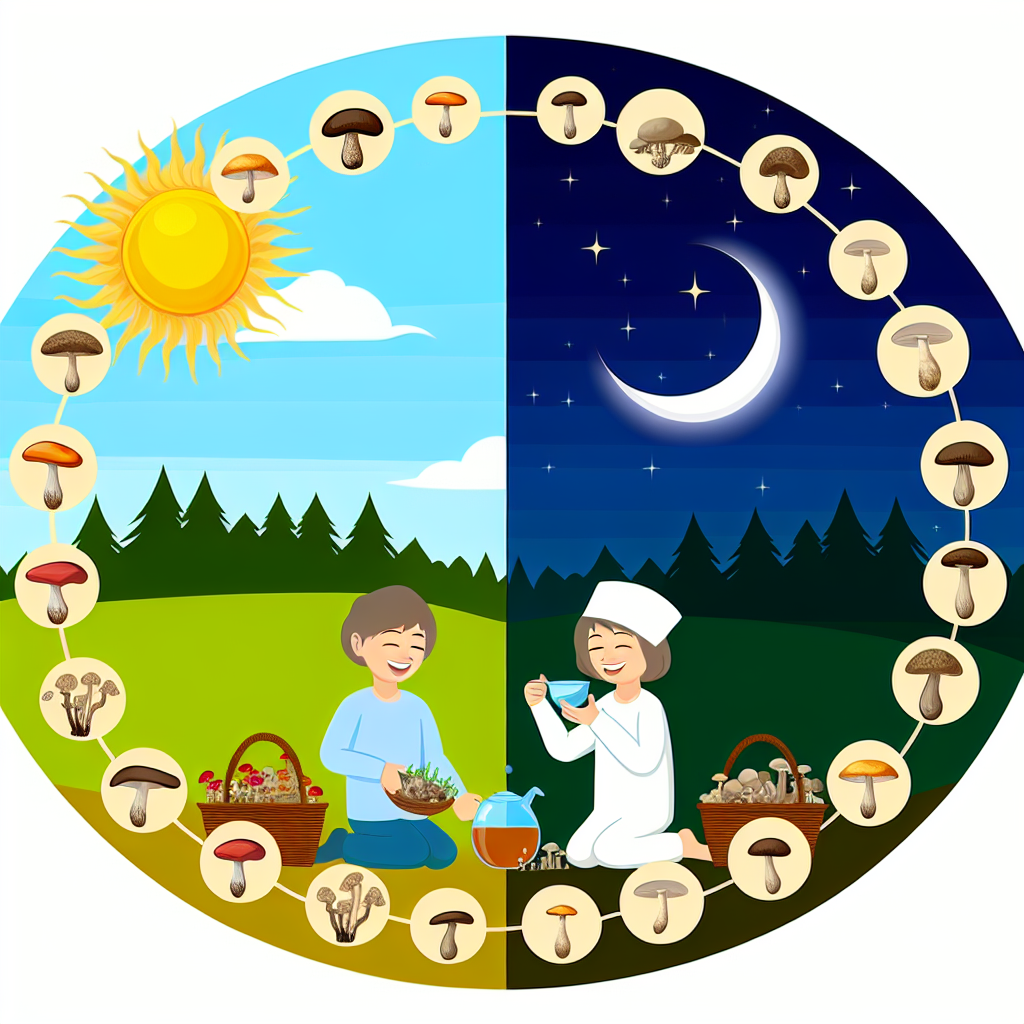Turkey Tail Mushroom and Cancer Support: What Research Shows
Introduction
Nature has long been a source of powerful healing compounds, with mushrooms taking center stage in many traditional and modern medicinal practices. Among the most researched medicinal mushrooms is Trametes versicolor, commonly known as turkey tail due to its colorful, fan-like appearance resembling a wild turkey’s feathers. This mushroom has been used for centuries in traditional Chinese and Japanese medicine for immune support, digestive health, and overall well-being. However, in recent years, researchers have turned their attention to its potential role in cancer support and treatment.
The growing interest in turkey tail mushroom is largely due to its abundance of polysaccharopeptides (PSPs) and polysaccharide-K (PSK, also known as Krestin)—bioactive compounds that are believed to enhance immune function and potentially improve outcomes for cancer patients. As more people seek natural complementary therapies alongside conventional cancer treatments like chemotherapy and radiation, turkey tail mushroom has gained popularity.
Cancer remains one of the most challenging diseases to treat, and while modern medicine has made tremendous strides, researchers continue to explore adjunctive therapies that may help improve patient outcomes. The primary reason turkey tail mushroom is being investigated in the realm of oncology is due to its immune-modulating benefits. Unlike pharmaceutical drugs that specifically target cancer cells, turkey tail stimulates and strengthens the immune system, potentially helping the body recognize and combat abnormal cell growth more effectively.
Clinical trials and scientific studies have suggested that PSP and PSK may help extend survival rates in cancer patients, particularly those with gastric, colorectal, and breast cancers. Furthermore, some research indicates that these compounds could mitigate some of the toxic side effects associated with traditional cancer treatments, improving quality of life for patients undergoing chemotherapy or radiation.
With promising research emerging from countries such as the United States, Japan, and China, turkey tail mushroom is increasingly being recognized as an effective supportive therapy in integrated cancer care. This article will explore the most recent findings and clinical evidence surrounding turkey tail mushroom and its potential role in supporting cancer treatment and patient recovery.
Scientific Studies on Turkey Tail Mushroom and Cancer
Significant research has focused on polysaccharopeptides (PSPs) and polysaccharide-K (PSK)—the two primary bioactive compounds found in turkey tail mushroom—examining their effects on immune modulation, cancer progression, and patient survival rates. Below are some of the most notable studies exploring how turkey tail can support cancer patients.
Turkey Tail Mushroom Enhances Immune System Function
A study published in the journal Global Advances in Health and Medicine (2012) investigated turkey tail’s effects on immune function in breast cancer patients undergoing chemotherapy. Researchers found that daily supplementation with PSP significantly increased immune markers such as natural killer (NK) cells and lymphocytes, which play a crucial role in identifying and destroying cancer cells [[1]](https://journals.sagepub.com/doi/10.7453/gahmj.2012.011).
PSK Improves Survival Rates in Gastric Cancer Patients
One of the most well-documented studies on turkey tail mushroom was conducted in Japan, where PSK has been approved as an official adjuvant cancer treatment. A systematic review published in Cochrane Library (2007) examined data from multiple clinical trials involving over 8,000 patients with gastric cancer. The findings showed that PSK improved long-term survival rates when used alongside conventional therapies like chemotherapy and surgery [[2]](https://www.cochranelibrary.com/cdsr/doi/10.1002/14651858.CD004800.pub2/full).
Turkey Tail Mushroom and Colorectal Cancer Treatment
Another compelling study published in Cancer Immunology, Immunotherapy (2019) assessed the effects of PSP on colorectal cancer patients receiving chemotherapy. The results indicated that PSP helped reduce chemotherapy-induced immune suppression, allowing the immune system to remain more active in fighting cancer during treatment [[3]](https://link.springer.com/article/10.1007/s00262-019-02462-9).
Turkey Tail as a Natural Support for Breast Cancer Patients
A groundbreaking study conducted by Bastyr University in the USA explored the effects of turkey tail on breast cancer patients. The study, which involved 50 women with stage I-III breast cancer, found that PSP supplementation enhanced immune function while reducing fatigue and side effects from chemotherapy [[4]](https://www.bastyr.edu/research/studies/turkey-tail-mushroom-breast-cancer).
Can Turkey Tail Have Direct Anti-Tumor Effects?
In addition to immune enhancement, some research suggests that turkey tail may have direct anti-tumor properties. A laboratory study published in PLOS ONE (2014) demonstrated that PSK inhibited tumor growth in lung cancer models by stimulating cytokine production and immune cell activation [[5]](https://journals.plos.org/plosone/article?id=10.1371/journal.pone.0102225).
These studies collectively suggest that turkey tail mushroom may serve as a powerful adjunct therapy in cancer support, improving not just immune function but also patient survival and quality of life when used in conjunction with conventional treatments.
Conclusion: The Role of Turkey Tail Mushroom in Cancer Support
Turkey tail mushroom has been used in traditional medicine for centuries, but modern scientific research is now confirming its potential as an adjunct therapy for cancer support. Clinical trials and laboratory studies highlight its ability to boost the immune system, enhance chemotherapy effectiveness, and improve survival rates in several types of cancer, particularly gastric, colorectal, and breast cancers.
While turkey tail is not a standalone cancer cure, its polysaccharopeptides (PSP and PSK) demonstrate promising immune-modulating effects that could significantly benefit cancer patients. Integrating turkey tail mushroom into a cancer treatment regimen, under the guidance of healthcare professionals, may contribute to improved long-term outcomes and enhance overall well-being.
As researchers continue to explore the potential of turkey tail in integrative oncology, this incredible medicinal mushroom is likely to gain even more recognition in the fight against cancer.
Summary:
Turkey tail mushroom, also known as Trametes versicolor, has gained significant attention for its potential role in supporting cancer treatment and patient recovery. The mushroom’s bioactive compounds, polysaccharopeptides (PSPs) and polysaccharide-K (PSK), have been shown to enhance immune function, improve survival rates in certain cancers, and mitigate the side effects of conventional therapies like chemotherapy. Clinical studies suggest that integrating turkey tail mushroom into a comprehensive cancer care plan, under the guidance of healthcare professionals, may contribute to improved long-term outcomes and enhanced quality of life for patients.

Dominic E. is a passionate filmmaker navigating the exciting intersection of art and science. By day, he delves into the complexities of the human body as a full-time medical writer, meticulously translating intricate medical concepts into accessible and engaging narratives. By night, he explores the boundless realm of cinematic storytelling, crafting narratives that evoke emotion and challenge perspectives. Film Student and Full-time Medical Writer for ContentVendor.com




